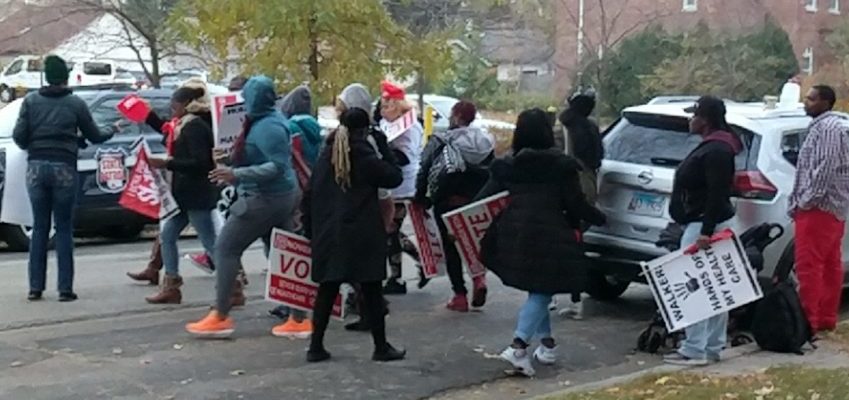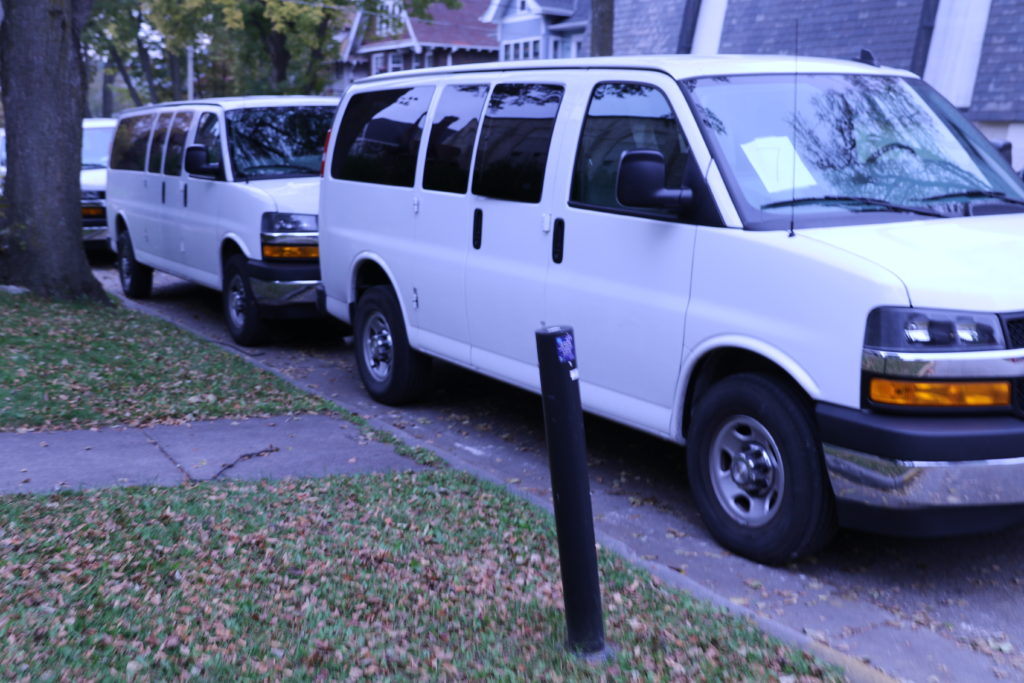 [bctt tweet=”While Friday’s demonstration was cast as an organic, Milwaukee-based initiative, some of the protesters drove vehicles with Illinois license plates. Fight For 15 Chicago carried a live video of the protest on its Facebook site. #wiright #wipolitics ” username=”MacIverWisc”]
[bctt tweet=”While Friday’s demonstration was cast as an organic, Milwaukee-based initiative, some of the protesters drove vehicles with Illinois license plates. Fight For 15 Chicago carried a live video of the protest on its Facebook site. #wiright #wipolitics ” username=”MacIverWisc”]
MacIver News Service | Oct. 29, 2018
By M.D. Kittle
MILWAUKEE – Perhaps playing to the “Fight for $15” protesters that had gathered outside the University of Wisconsin-Milwaukee Helene Zelazo Center hours before Friday evening’s gubernatorial debate, Tony Evers doubled down on his mostly empty pledge to raise the minimum wage to $15 an hour.
“I think by the end of my first term we will be there,” Evers said of his pursuit for the $15 minimum during his second and final debate with Republican Gov. Scott Walker.
The $15-minimum-or-bust crowd certainly made their presence known, with a little help from some out-of-state friends.
“I think by the end of my first term we will be there,” Evers, superintendent of the state Department of Public Instruction and Democratic candidate for governor, said of his pursuit for the $15 minimum during his second and final debate with Republican Gov. Scott Walker.
Evers of course would have to win at the polls next week and see an unlikely power shift in the Republican-controlled Legislature to turn his campaign pledge into reality. The Assembly, it would appear, is unlikely to shift from red — with a Republican majority not seen since the Eisenhower administration — to blue.
Evers’ comments follow hard on the heels of a campaign promise he made last week at a political rally in Milwaukee, where he insisted Wisconsin is “going to $15 an hour minimum. Minimum.” He said so as he stood alongside fellow liberals, U.S. senators Bernie Sanders (I-Vt.) and Tammy Baldwin (D-Madison), purveyors of the forced, and ever-escalating, minimum wage.
While a growing stack of research shows the negative impacts of a mandated $15 minimum wage on the low-wage earners it’s supposedly designed to help, that hasn’t stopped the big labor-backed Fight for $15 movement from railing against reality.

Dozens of protesters turned out Friday afternoon, just hours before the debate, to demonstrate against Walker. Vans carried demonstrators to the event, much like the old recall days of 2011-12, when unions and the Democratic Party brought in professional protesters to anti-Walker rallies. One of the vans was marked with a sign supporting Evers and Democratic lieutenant governor candidate Mandela Barnes. After clogging sidewalks, the phalanx of demonstrators blocked the street in front of the event center.
Beyond the minimum wage, protesters took aim at the Republican governor’s rejection of the so-called “free” Medicaid expansion money offered to states under Obamacare. All that free money came with a catch: states would eventually be required to cover some of the costs, and they would be subjected to government regulations that would negatively impact their health care systems.
While Friday’s demonstration was cast as an organic, Milwaukee-based initiative, some of the protesters drove vehicles with Illinois license plates. Fight For 15 Chicago carried a live video of the protest on its Facebook site.
“The #FightFor15 is protesting Scott Walker at the final Gubernatorial Debate in Wisconsin! We’re demanding the next governor prioritize affordable health care for all people, commit to raising the minimum wage and grow unions in Wisconsin,” the Facebook page stated.
[bctt tweet=”While Friday’s demonstration was cast as an organic, Milwaukee-based initiative, some of the protesters drove vehicles with Illinois license plates. Fight For 15 Chicago carried a live video of the protest on its Facebook site.” username=”MacIverWisc”]
Growing unions is indeed a top priority for this organized labor-led initiative. The Service Employees International Union last year dumped nearly $11 million into the Fight for $15 campaign, $19 million in 2016, according to an analysis of Labor Department data by the Center for Union Facts.
Big labor has pumped tens of millions of dollars into its campaign to oust Walker, whose signature Act 10 law reformed public sector collective bargaining in Wisconsin — costing unions political power and employees and saving taxpayers billions of dollars in the process.
Evers’ campaign has taken a lot of money from organized labor, including his largest contributions, $112,000 each from Operating Engineers Local 139 and Wisconsin Laborers District Council, according to Vote Smart, a non-profit, non-partisan research organization that collects and distributes information on candidates for public office. Labor unions have contributed at least $684,000 of the $2.72 million the Evers camp has raised in the current election cycle, according to Vote Smart’s latest data.